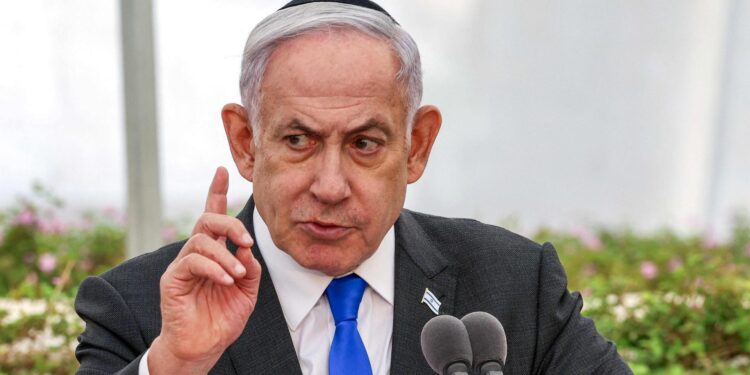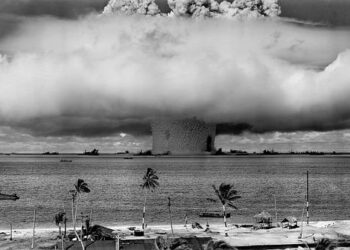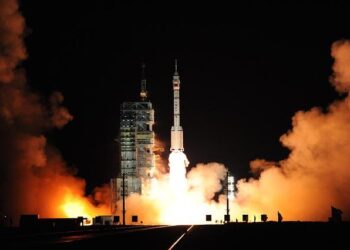Heightened Diplomatic Tensions: Netanyahu’s Critique of Macron
The diplomatic landscape has become increasingly fraught as Israeli Prime Minister Benjamin Netanyahu publicly criticized French President Emmanuel Macron. Netanyahu’s remarks suggest that Macron’s recent statements regarding the Gaza conflict may be interpreted as a tacit approval of terrorism. This controversy has sparked notable backlash from Israeli officials, who advocate for a more balanced perspective on the humanitarian crises involved. The exchange underscores the fragile nature of international relations as leaders grapple with the dire consequences of ongoing violence and contemplate necessary global actions. The deteriorating relationship between Israel and France reflects wider geopolitical divides concerning peace initiatives in the Middle East.
Netanyahu’s Criticism of Macron: A Diplomatic Crisis
Israeli Prime Minister Benjamin Netanyahu has voiced strong objections to French President Emmanuel Macron’s comments about Gaza, accusing him of indirectly supporting terrorism. In a recent press conference, Netanyahu argued that Macron’s advocacy for enhanced humanitarian access fails to acknowledge the complex realities surrounding the conflict.He warned that such perspectives could inadvertently empower extremist organizations like Hamas,jeopardizing Israel’s quest for peace and security in the region. According to Netanyahu,any criticism aimed at Israel must take into account the existential threats posed by these groups and provide justification for Israel’s military actions.
The repercussions from these accusations have escalated tensions between Israel and France, prompting Israeli officials to urge their French counterparts to reassess their stance on Gaza. They caution that such rhetoric not only jeopardizes Israel’s security but also undermines global counter-terrorism efforts. Both leaders find themselves at a critical crossroads; while Netanyahu advocates for a tougher approach against terrorism, Macron seeks to balance humanitarian concerns with geopolitical realities. This discord highlights broader challenges faced by Western nations as they navigate intricate dynamics within the Israeli-Palestinian conflict.
Franco-Israeli Relations Under Examination Amid Recent Disputes
The escalating verbal exchanges between Prime Minister Benjamin Netanyahu and President Emmanuel Macron mark a significant shift in Franco-Israeli relations amidst ongoing violence in Gaza. By asserting that Macron’s comments equate to supporting terrorism, Netanyahu signals an expanding rift beyond mere diplomatic disagreements. Historically characterized by mutual interests, relations between France and Israel are now clouded by conflicting narratives regarding Palestinian issues—this evolution carries considerable implications for both countries’ roles on an international stage.
Several pivotal factors are influencing this changing relationship:
- Public Opinion: Macron’s stance may resonate with segments of French society sympathetic towards Palestinians, perhaps impacting domestic political dynamics.
- Diplomatic Alliances: This confrontation could draw France closer to Arab nations while affecting its position within European Union discussions related to Middle Eastern policies.
- Economic Partnerships: Increased tensions might threaten crucial economic collaborations especially in technology and defense sectors where both countries have historically cooperated.
| Date | Description | Status/Outcome |
|---|---|---|
| October 2023 | Macron Addresses Gaza Situation | Netanyahu Issues Strong Rebuttal |
| September 2023 | Joint Military Exercises | Strengthened Defense Cooperation |
| August 2023 | Economic Forum Held | Increased Trade Dialog Initiated |
Approaches for Strengthening Diplomatic Engagements Ahead
The evolving diplomatic environment highlighted by tensions between Prime Minister Benjamin Netanyahu and President Emmanuel Macron illustrates how challenging it can be for nations engaging over sensitive topics like those surrounding Gaza. Given accusations suggesting support for terrorism stemming from remarks made by both leaders, it is indeed vital that future interactions prioritize dialogue aimed at fostering understanding rather than exacerbating conflicts further.
A variety of strategies can be implemented moving forward:
- Establish Clear Interaction Channels: Creating private forums can help mitigate misunderstandings while clarifying intentions among involved parties.
- Encourage Multilateral Discussions: Involving neutral third-party countries may facilitate balanced conversations capable of mediating disputes before they escalate.
- Highlight Common Objectives: Focusing on shared interests—such as regional stability or humanitarian aid—can serve as common ground upon which collaboration can be built.
- Promote Cultural Exchanges: Strengthening interpersonal connections through cultural initiatives fosters goodwill over time which may soften rigid stances.
| Strategies | Description | ||
|---|---|---|---|
| Open Communication Channels Direct lines established reduce potential misunderstandings. | Multilateral Engagement Third-party mediation helps balance discussions. | Shared Goals Focusing on mutual interests encourages cooperation. | Cultural Exchange Building goodwill through personal connections fosters long-term relationships. Conclusion: Navigating Complex Geopolitical Challenges AheadThe rising tensions following exchanges between Prime Minister Benjamin Netanyahu and President Emmanuel Macron highlight intricate geopolitical dynamics currently unfolding amid ongoing strife involving Gaza . As these two leaders continue their contentious dialogue , observers will closely monitor how their interactions evolve , given potential ramifications not just locally but also globally . The outcomes stemming from this discourse could considerably influence future engagements among European nations alongside shaping approaches taken towards addressing persistent crises within regions like Palestine . Ultimately , finding pathways toward constructive communication remains crucial if lasting solutions are ever going achieve . ADVERTISEMENT |















